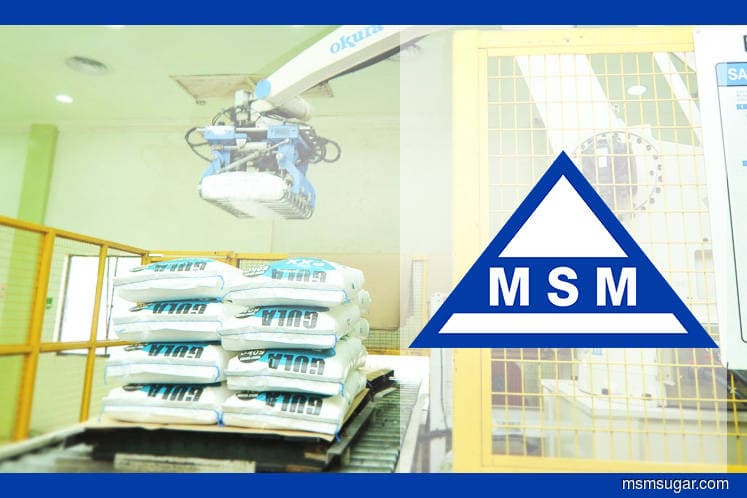
This article first appeared in The Edge Financial Daily on February 21, 2019
KUALA LUMPUR: MSM Malaysia Holdings Bhd, the country’s leading refined sugar producer and a subsidiary of FGV Holdings Bhd, ended 2018 on a positive note, posting a net profit of RM35.62 million compared to a net loss of RM36.34 million for the previous year.
This was despite slipping into the red for the fourth quarter ended Dec 31, 2018 (4QFY18) with a net loss of RM10.39 million, versus a net profit of RM9.32 million a year ago, on a lower average selling price and higher finance cost. This translated into a loss per share of 1.48 sen for 4QFY18 compared to earnings per share of 1.33 sen for 4QFY17.
Quarterly revenue contracted by 16.4% to RM531.13 million, from RM635.56 million a year ago, due to a 3% fall in overall volume sold, as well as a lower average selling price.
Nevertheless, MSM turned a profit for full FY18, which it attributed to a stronger ringgit against the US dollar and a lower raw sugar cost despite lower average selling price. Revenue for the year, however, came in 16.1% lower at RM2.22 billion, versus RM2.64 billion for FY17, due to aggressive competition in the domestic sugar market resulting in a lower average selling price.
In a statement yesterday, MSM executive director Datuk Khairil Anuar Aziz cautioned that “generating revenue in 2019 will be another challenge due to the excise duty (soda tax) for sugar beverages of 40 sen per litre beginning April 1”.
“Although too early to draw any conclusion, the impact potentially reflects MSM’s bottom line. Nonetheless, MSM remains optimistic about its performance in the sugar business alongside the support of the board members, management, employees and positive synergies from shareholders and stakeholders.”
He added that MSM is reshaping the way it does its business to ensure that the company remains competitive, and seeks the government’s support to protect the local refiners by not issuing new sugar import permits as sugar is considered a strategic commodity in most parts of the world and costs of doing business have escalated over the years.